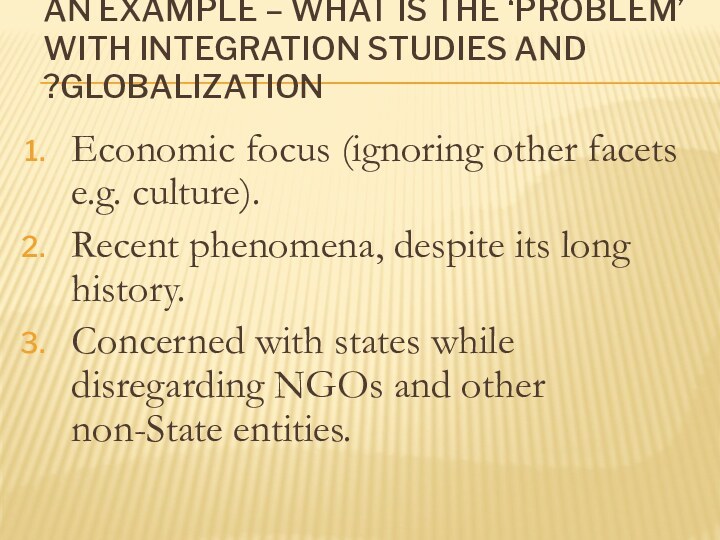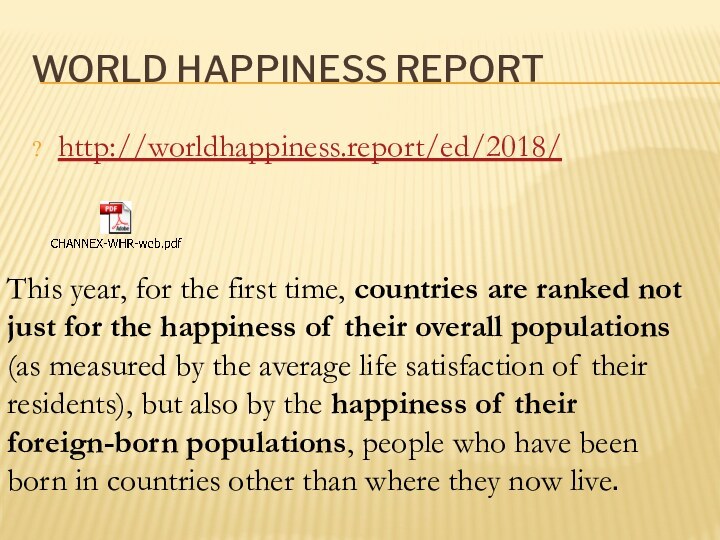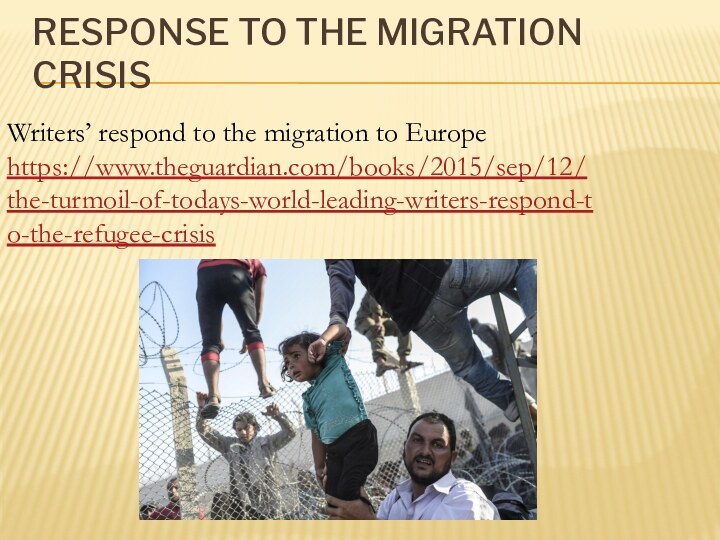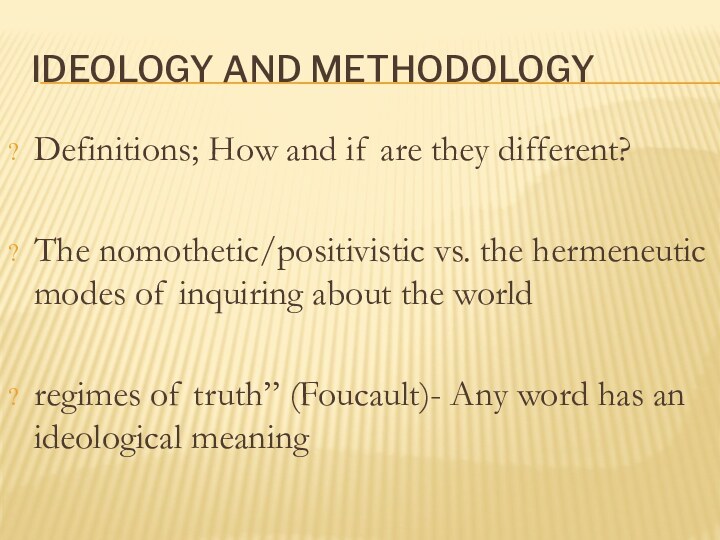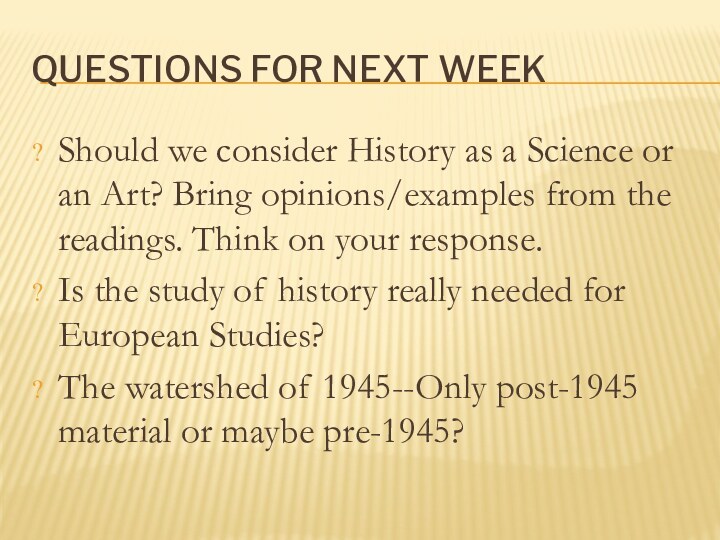Слайд 2
OPENING CLASS- PLAN
Guiding themes for the course.
Objectives and
Format
Course Plan
Text books and Course Requirements
Why and
What is European Studies ?
Study case: Migration.
Слайд 3
GUIDING THEMES:
Europe as an object of research.
Focusing
on ‘burning’ topics that will probably be in the
center of your current or future research, e.g. Migration, Islam in Europe, Globalization, Glocalization, Nationalism etc.
The meaning of Science and Research.
Within and Between the Humanities and the Social Sciences
But Mainly Historical, Sociological and Cultural emphasis.
.
Слайд 4
OBJECTIVES
Expanding your knowledge of various research methodologies and
ideologies.
Developing research tools – or preparing the path towards
your Research Question
Слайд 5
FORMAT
The course will be divided into two main
parts:
1) Methods and Research Ideologies
2) 'Doing Research'
Слайд 6
COURSE PLAN:
Why European Studies? (19.3. 18)
History-Science or Art?
(26.3. 18)
The Meaning of Science (9.4.18)
Contingency and Determinism (16.4.18)
Positivism
and its Critics (23.4.18)
Annales (30.4.18)
Cultural Turn and Postmodernism (7.5.18)
Rafael Y. Lewis, One for all and all for one: History, Archaeology, Environment and the Battle of Arsuf (28.5.18)
The Research Question (4.6.18)
The Creative Mind (11.6.18)
Finding the Source (18.6.18 )
Concluding Session (25.6.18)
Слайд 7
SOME TEXT BOOKS AND SOURCES
Sage Handbook
of European Studies , Sage, 2009.
The Crafts of Research
, Chicago UP, 2003.
European Review (Journal), 26 volumes, Cambridge University Press, 1993,.
Слайд 8
REQUIREMENTS
Two Semester Assignments – Article/Book Review
and Biographical Summary (30%)
Participation/Reading – Based on Core Questions
(10%)
Attendance – (10%)
Concluding Assignment – (50%)
Слайд 10
QUESTIONS CONCERNING EUROPEAN STUDIES
How can we best
study Europe? (Methodologies, Ideologies, Meanings.)
What is included (excluded) in
European Studies?
What is our time-frame?
Слайд 11
EUROPEAN STUDIES VS. EU INTEGRATION STUDIES ?
Integration
Studies [IS] is focused on the study of EU
institutions, EU Policy Making and Law (Bureaucracy and Treaties)
Mainly dominated by scholars of International Relations and Political Science
Слайд 12
‘If I could start again I would start
with
Culture’
(Jean Monnet)
Слайд 13
[ES] EUROPEAN STUDIES
A dominant Multidisciplinary aspect. Concerned also
but not only with the study of Identities; Nationalism;
Cultural and Social factors. Europe includes more states/spheres than the EU- Different geographical, cultural and national sphere
ES is at least as important (if not more) as IS- Exploring the current and past transformations of Europe. Delving into meanings.
Different Literature – ES Literature is far more ‘rich’
The global aspect – different from the inward look
Not only institutions but also the transformation of other entities – the study of the processes.
.
Слайд 14
AN EXAMPLE – WHAT IS THE ‘PROBLEM’ WITH
INTEGRATION STUDIES AND GLOBALIZATION?
Economic focus (ignoring other facets e.g.
culture).
Recent phenomena, despite its long history.
Concerned with states while disregarding NGOs and other non-State entities.
Слайд 15
It has never been simply the study of
a region , but always complexly interwoven with ideas
about modernity , the West , Christendom , democracy , and civilization itself (Calhoun, 2003)
Слайд 16
THE REFUGEE ‘CRISIS’ – THE NEED FOR AN
EUROPEAN STUDIES APPROACH
Europe, especially, with the current migration
‘waves’ is linked to other, various and sometimes distant geographical and cultural spheres.
How many of you are focusing or intend to focus on the migration to Europe?
Migration as one of the main themes of present and future research in European Studies.
Слайд 17
WORLD HAPPINESS REPORT
http://worldhappiness.report/ed/2018/
This year, for the first
time, countries are ranked not just for the happiness
of their overall populations (as measured by the average life satisfaction of their residents), but also by the happiness of their foreign-born populations, people who have been born in countries other than where they now live.
Слайд 18
RESPONSE TO THE MIGRATION CRISIS
Writers’ respond to
the migration to Europe https://www.theguardian.com/books/2015/sep/12/the-turmoil-of-todays-world-leading-writers-respond-to-the-refugee-crisis
Слайд 19
IDEOLOGY AND METHODOLOGY
Definitions; How and if are
they different?
The nomothetic/positivistic vs. the hermeneutic modes of inquiring
about the world
regimes of truth” (Foucault)- Any word has an ideological meaning
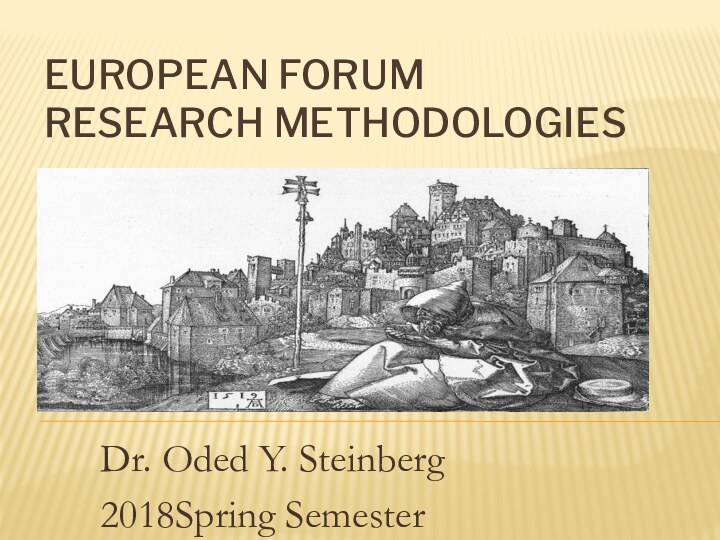
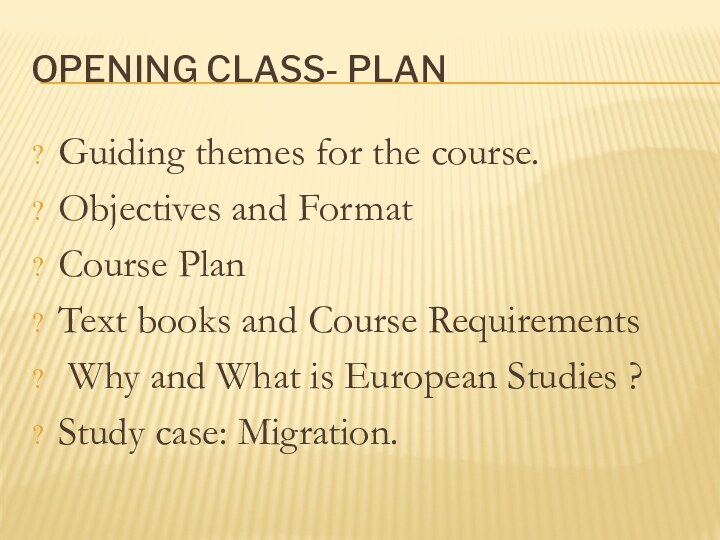
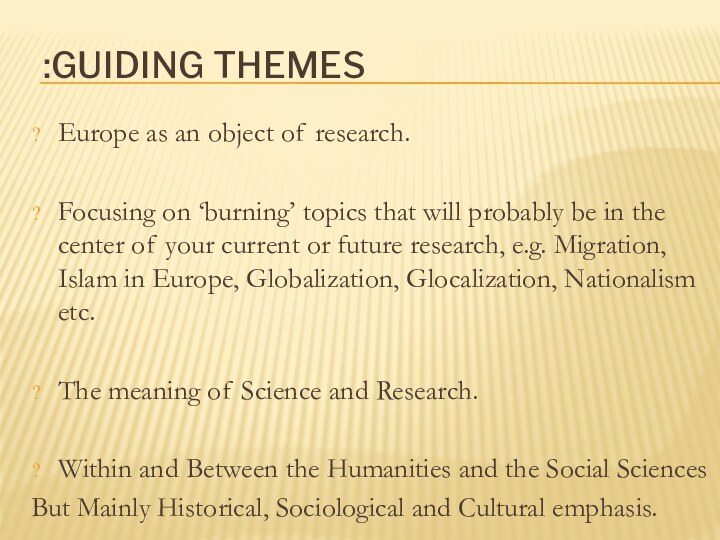
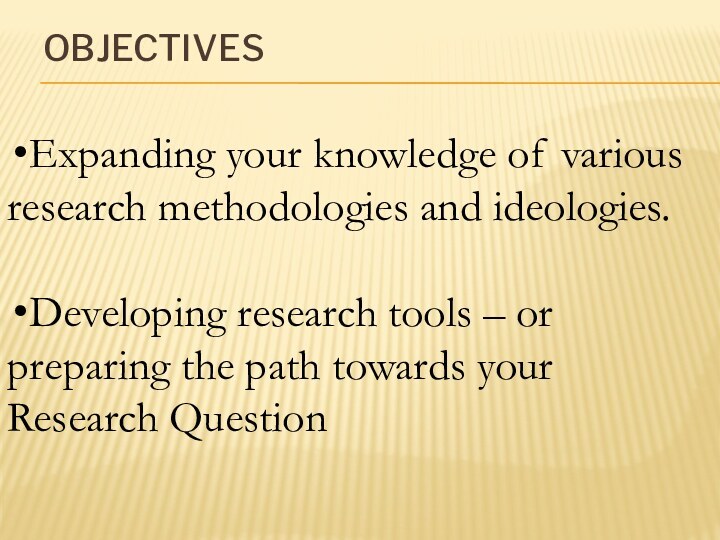
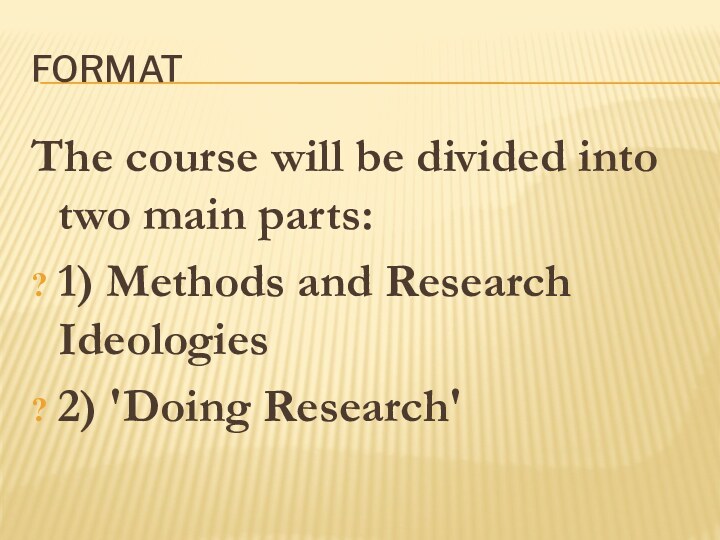
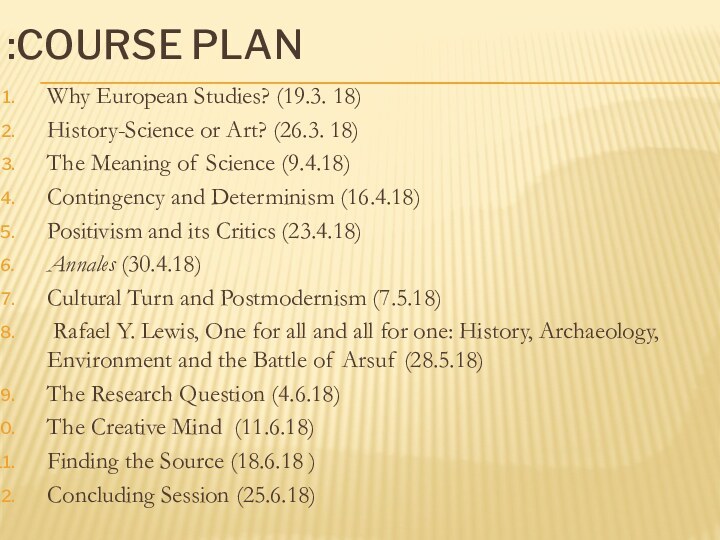
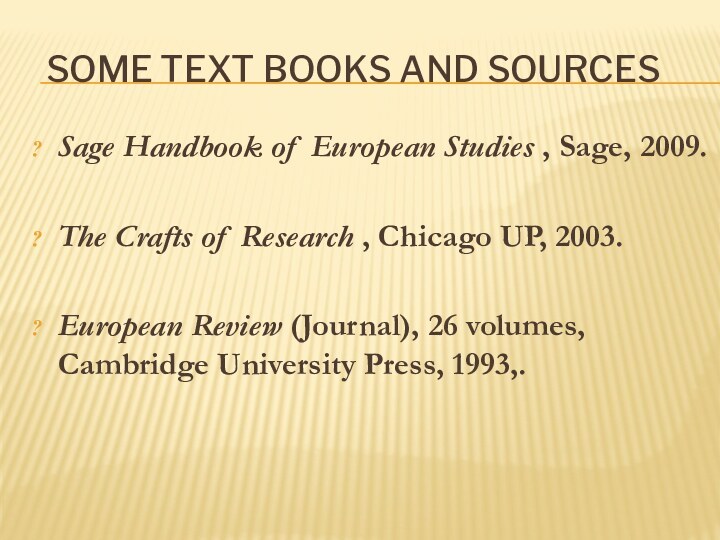
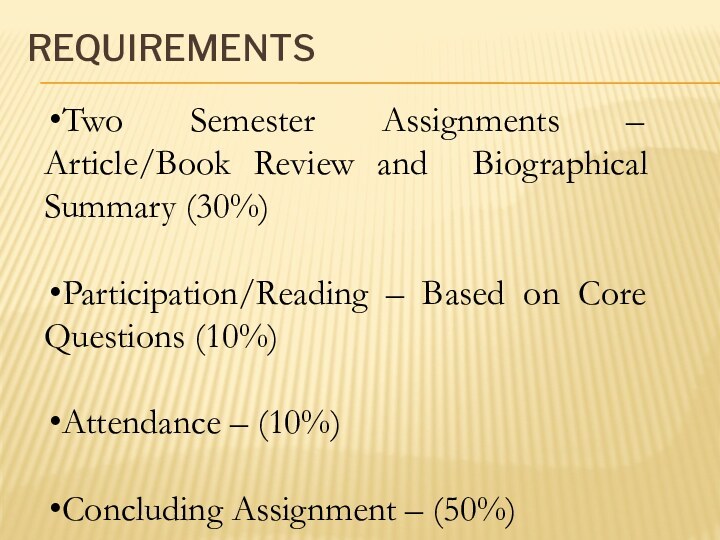

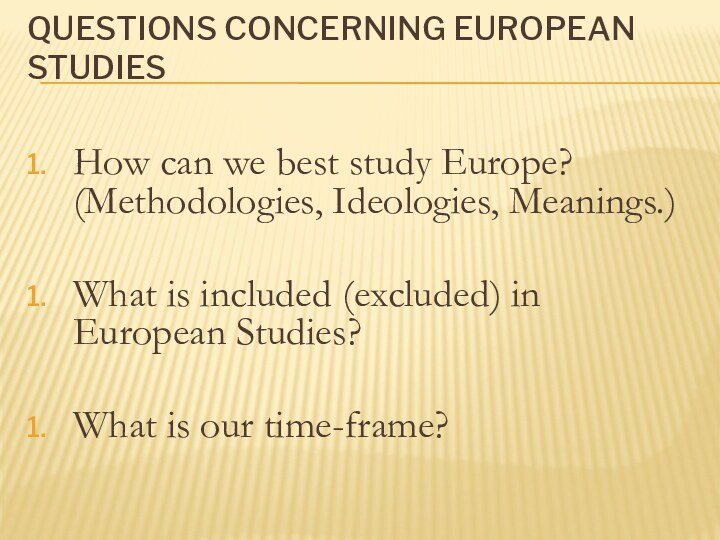
![European Forum Research Methodologies EUROPEAN STUDIES VS. EU INTEGRATION STUDIES ? Integration Studies [IS] is](/img/tmb/15/1456702/23f5d814b1cdd2827edbaaec13c00e7a-720x.jpg)
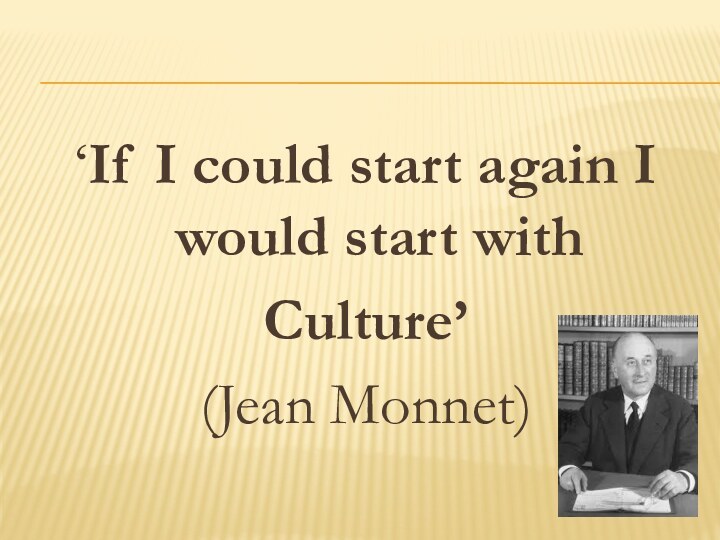
![European Forum Research Methodologies [ES] EUROPEAN STUDIESA dominant Multidisciplinary aspect. Concerned also but not only with](/img/tmb/15/1456702/610e3185ab5839a56c8897bc8b8e037b-720x.jpg)
